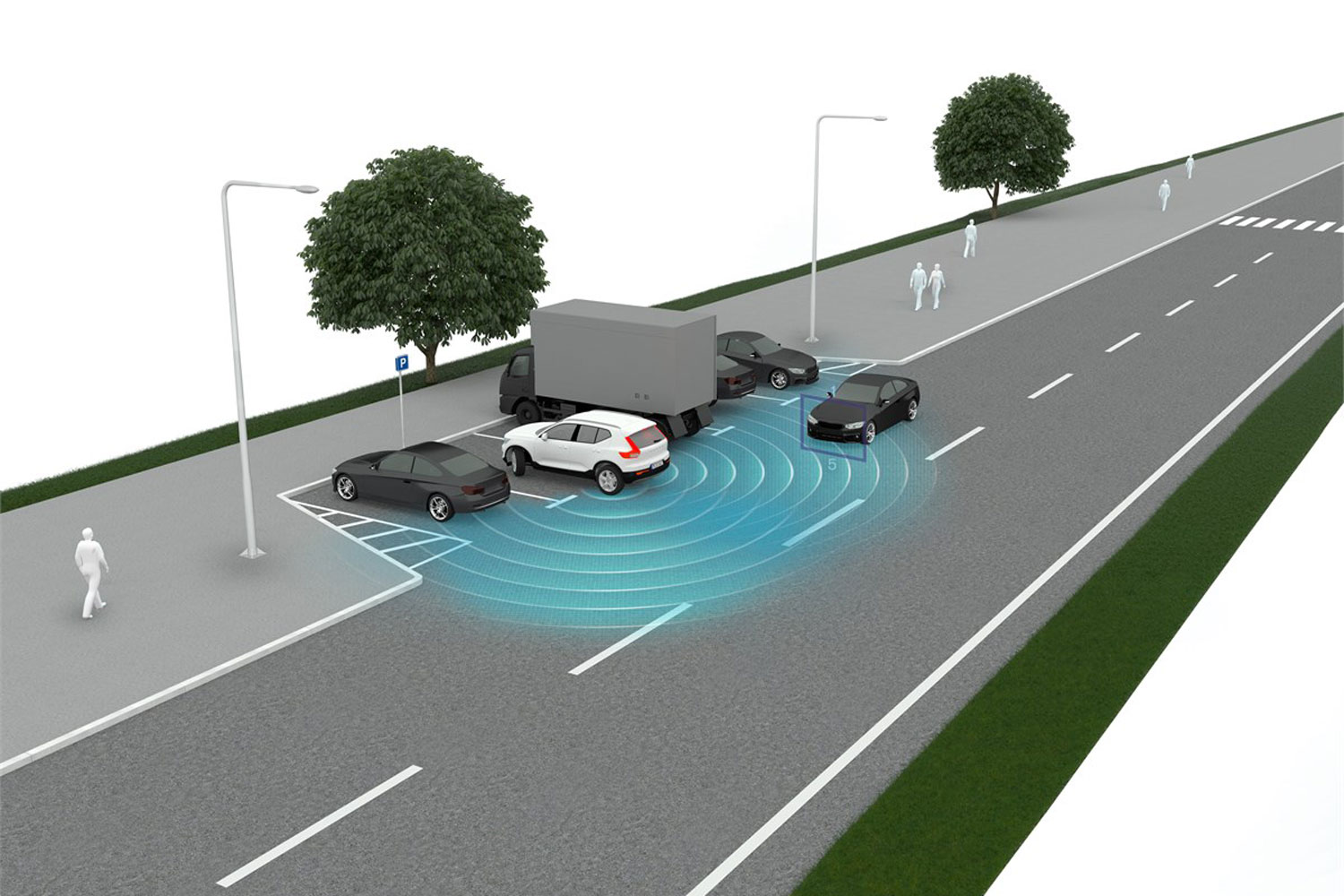What Is Rear Cross-Traffic Monitoring?
With the car in reverse, this feature acts as a second set of eyes, helping prevent a crash.
 Volvo
Volvo
A lot of modern vehicles have chunky roof pillars, which hold up better in an accident than thin ones and often add a stylish flair, but they can impede the driver’s outward vision. It’s particularly noticeable when you’re trying to back out of a parking space with a vehicle on both sides of you. How are you supposed to know if anyone is about to pass behind your car?
Enter rear cross-traffic monitoring, which can see beyond the scope of a rearview mirror or backup camera to alert drivers to approaching vehicles, pedestrians, animals, and/or objects farther out on the periphery. If the system predicts you are about to hit an object, it will typically apply the brakes. To identify potential hazards, these systems rely on ultrasonic or radar sensors, typically located on or near both corners of the rear bumper. They work only when the car’s transmission is in reverse and only at parking-lot speeds.
Does Rear Cross-Traffic Monitoring Improve Safety?
Since the sensors often see what’s hidden to the driver, rear cross-traffic monitoring can be a big factor in preventing a collision. In 2018, the Insurance Institute for Highway Safety compared various GM and Mazda models with and without the system and, after controlling for other assistance features, found that those with rear cross-traffic monitoring were 22% less likely to be involved in a collision while backing up. In addition to potentially saving lives, this feature can save drivers money, as the cost of repairing even minor dents and scrapes can be hefty.
Rear cross-traffic monitoring can be especially helpful to drivers in small vehicles, as they sit low enough to the ground that seeing around large trucks or SUVs in a parking lot may be impossible. It’s also useful to those in very tall vehicles, such as heavy-duty pickups, as they sit so high up that they might not see shorter people or cars.
Which Vehicles Have Rear Cross-Traffic Monitoring?
A wide variety of new cars offer this tech, though on many mainstream models, the buyer needs to spec an extra-cost package or choose a high trim level. On the base RAV4, for example, Toyota bundles rear cross-traffic alert with blind spot monitoring in a $680 package. Those features come standard on all other trims.
The most advanced systems will supplement the alert with localized seat vibration and/or a visual indicator, such as an arrow displayed on the rearview camera screen, to let the driver know from which direction the threat is coming. Some rear cross-traffic monitoring systems are more prone to false alerts than others and they may slam the brakes unnecessarily, startling occupants. If the system seems too intrusive or overly sensitive, the driver can generally turn it off by going through the vehicle setting.
Written by humans.
Edited by humans.
 Andrew Ganz
Andrew GanzAndrew Ganz has had cars in his blood ever since he gnawed the paint off of a diecast model as a toddler. After growing up in Dallas, Texas, he earned a journalism degree, worked in public relations for two manufacturers, and served as an editor for a luxury-lifestyle print publication and several well-known automotive websites. In his free time, Andrew loves exploring the Rocky Mountains' best back roads—when he’s not browsing ads for his next car purchase.
Related articles
View more related articles